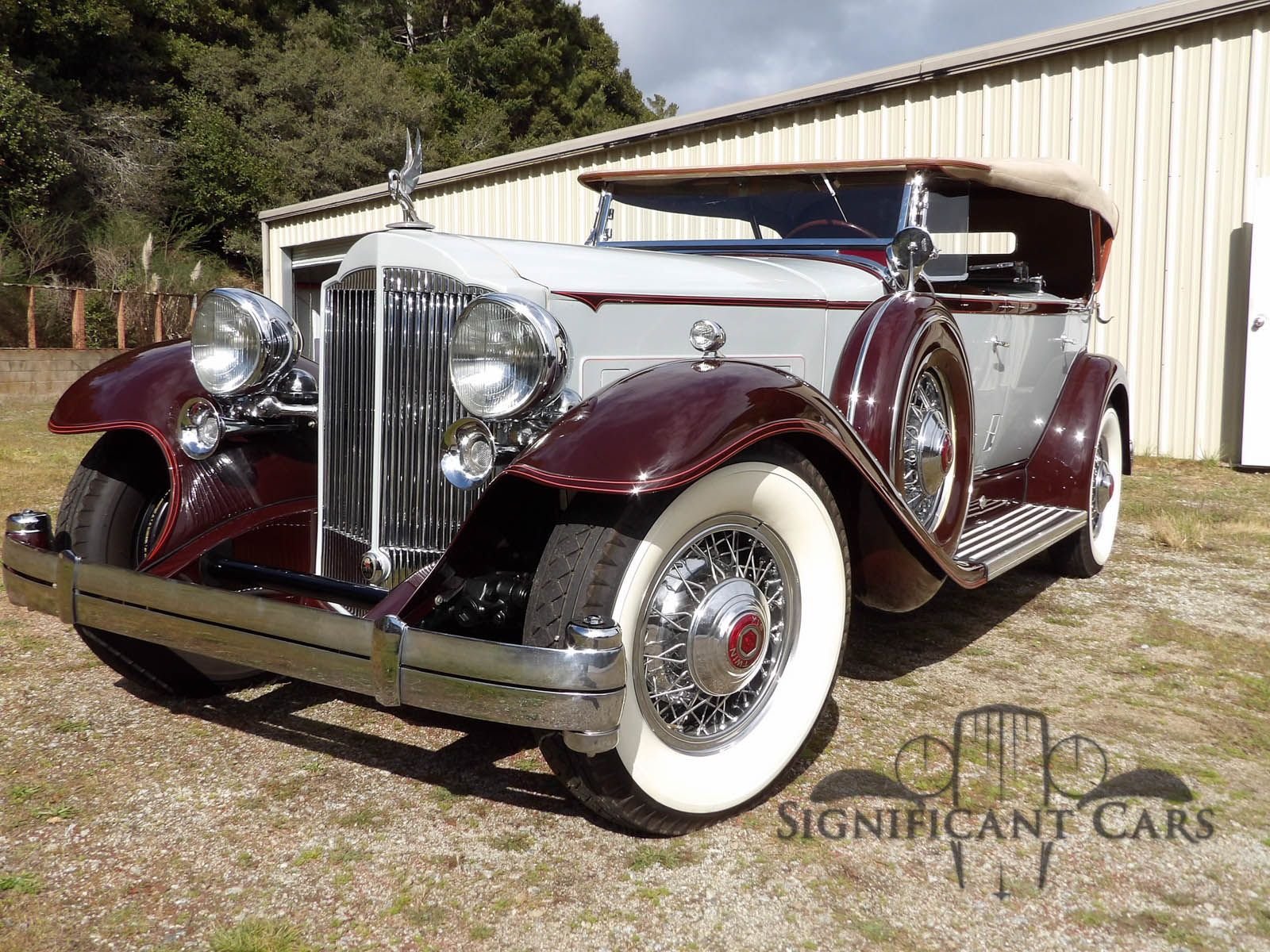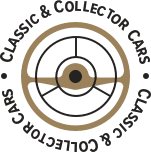Drivetrain
Chassis
Body

1932 Packard Twin Six Dual Cowl Phaeton Spectacular Example1 of 8 made
Packard was founded by brothers James Ward Packard , William Doud Packard and his partner George Lewis Weiss in the city of Warren OH. James Ward believed that they could build a better horseless carriage that the Winton cars owned by Weiss (An important Winton stockholder) and James Ward, himself a mechanical engineer, had some ideas how to improve on the designs of current automobiles. By 1899, they were building vehicles. The company, which they called the Ohio Automobile Company, quickly introduced a number of innovations in its designs, including the modern steering wheel and years later the first production 12-cylinder engine. While Ford was producing cars that sold for $440, the Packards concentrated on more upscale cars that started at $2,600. Packard automobiles developed a following not only in the United States, but also abroad, with many heads of state owning them. In need of more capital, the Packard brothers would find it when Henry Joy, a member of one of Detroit's oldest and wealthiest families, bought a Packard. Impressed by its reliability, he visited the Packards and soon enlisted a group of investors that included his brother-in-law, Truman Newberry. In 1902, Ohio Automobile Company became Packard Motor Car Company, with James as president. Packard moved its automobile operation to Detroit soon after and Joy became general manager and later chairman of the board.
The Packard's factory on East Grand Boulevard in Detroit was designed by Albert Kahn, and included the first use of reinforced concrete for industrial construction in Detroit. When opened in 1903, it was considered the most modern automobile manufacturing facility in the world and its skilled craftsmen practiced over eighty trades.The 3.5 million sqf plant covered over 35 acres and straddled East Grand Boulevard. It was later subdivided by eighty-seven different companies. Kahn also designed The Pacakrd Proving Grounds at Utica, MI.
Throughout the nineteen-tens and twenties, Packard built vehicles consistently were among the elite in luxury automobiles. The company was commonly referred to as being one of the "Three P's" of American motordom royalty, along with Pierce and Peerless. Packard's leadership of the luxury car field was supreme. Entering into the 1930s Packard attempted to beat the stock market crash and subsequent depression by manufacturing ever more opulent and expensive cars than it had prior to October 1929.
Packard reintroduced a 12 cylinder car after a nearly decade hyatis in 1932 with the return of the Twin Six. Oputlent they were with only the finest appointments and a new silky smooth powerplant that to many is the finest chassis produced during the classic era.
Less than 2 handfuls- 8 to be exact- Sport or Dual Cowl Phaetons were produced in 1932- this being #6. This excellent example has a known history going back many years, and was restored in the 90's. The car traveled to Europe in the 2000's and was shown at prestigious Concours such as the Ville d'Este, and Louis Vuitton Paris and Zurich Shows where it received First Place Awards. Returning Stateside the car has been continually enjoyed and maintained in notable collections.The wheels were rebuilt in 2008. The car still presents very very well and will be a most welcome entrant in any concours event and certainly can be the centerpiece of any collection of important cars. THIS CAR IS LOCATED IN NEW ZEALAND- Shipping to the West Coast will run about $4000
Price
$450,000
1932 Packard
Twin Six Dual Cowl Phaeton
Description
Packard was founded by brothers James Ward Packard , William Doud Packard and his partner George Lewis Weiss in the city of Warren OH. James Ward believed that they could build a better horseless carriage that the Winton cars owned by Weiss (An important Winton stockholder) and James Ward, himself a mechanical engineer, had some ideas how to improve on the designs of current automobiles. By 1899, they were building vehicles. The company, which they called the Ohio Automobile Company, quickly introduced a number of innovations in its designs, including the modern steering wheel and years later the first production 12-cylinder engine. While Ford was producing cars that sold for $440, the Packards concentrated on more upscale cars that started at $2,600. Packard automobiles developed a following not only in the United States, but also abroad, with many heads of state owning them. In need of more capital, the Packard brothers would find it when Henry Joy, a member of one of Detroit's oldest and wealthiest families, bought a Packard. Impressed by its reliability, he visited the Packards and soon enlisted a group of investors that included his brother-in-law, Truman Newberry. In 1902, Ohio Automobile Company became Packard Motor Car Company, with James as president. Packard moved its automobile operation to Detroit soon after and Joy became general manager and later chairman of the board.
The Packard's factory on East Grand Boulevard in Detroit was designed by Albert Kahn, and included the first use of reinforced concrete for industrial construction in Detroit. When opened in 1903, it was considered the most modern automobile manufacturing facility in the world and its skilled craftsmen practiced over eighty trades.The 3.5 million sqf plant covered over 35 acres and straddled East Grand Boulevard. It was later subdivided by eighty-seven different companies. Kahn also designed The Pacakrd Proving Grounds at Utica, MI.
Throughout the nineteen-tens and twenties, Packard built vehicles consistently were among the elite in luxury automobiles. The company was commonly referred to as being one of the "Three P's" of American motordom royalty, along with Pierce and Peerless. Packard's leadership of the luxury car field was supreme. Entering into the 1930s Packard attempted to beat the stock market crash and subsequent depression by manufacturing ever more opulent and expensive cars than it had prior to October 1929.
Packard reintroduced a 12 cylinder car after a nearly decade hyatis in 1932 with the return of the Twin Six. Oputlent they were with only the finest appointments and a new silky smooth powerplant that to many is the finest chassis produced during the classic era.
Less than 2 handfuls- 8 to be exact- Sport or Dual Cowl Phaetons were produced in 1932- this being #6. This excellent example has a known history going back many years, and was restored in the 90's. The car traveled to Europe in the 2000's and was shown at prestigious Concours such as the Ville d'Este, and Louis Vuitton Paris and Zurich Shows where it received First Place Awards. Returning Stateside the car has been continually enjoyed and maintained in notable collections.The wheels were rebuilt in 2008. The car still presents very very well and will be a most welcome entrant in any concours event and certainly can be the centerpiece of any collection of important cars. THIS CAR IS LOCATED IN NEW ZEALAND- Shipping to the West Coast will run about $4000
View More
Specs
- Year
- 1932
- Make
- Packard
- Model
- Twin Six Dual Cowl Phaeton
- Miles
- 80,000
- Vin
- 900441
- Stock
- 450
Basic
Engine
Body
Interior
View More
Collector Car Websites & Software
Are you a Collector Car Dealer? A Collector Car Auction House? How about a Car Storage or Private Collector? Speed Digital, the industry leader in collector car websites and software, has a solution for you;

DEALER ACCELERATE
Custom websites and Dealer Management Software for classic and collector car dealers. Manage your specialty inventory, publish to your custom website and classified websites, manage sales leads, and more.

AUCTION ACCELERATE
Custom websites and Live Auction Management Software for classic and collector auction houses. Manage your consignments, sellers, bidders, auction block, paperwork, and more.

PRIVATE COLLECTION
Inventory management software designed for classic and collector vehicles. If you're an avid car collector, a car storage facility, or even a Concours d'Elegance, this software and associated website can meet your needs.



































